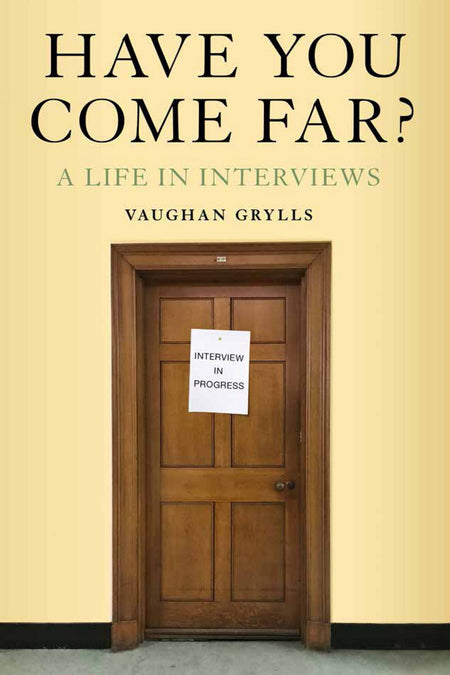TLS:
"Of all rites of passage, few burn so deep in the memory as interviews. The artist Vaughan Grylls certainly has strong recall of the many times he has presented himself for a job: there is horrible credibility in his recollection of every interview, from 1951 (St Paul’s Cathedral choir school, failed) and Skegness Secondary Modern (mortified by undone shoelaces), to numerous British and American universities. He spares himself nothing, from a failed motorbike test in 1960 to an excruciating phone interview with a colour magazine in 2012. But he made it to the Slade, headed two British art schools and taught at half a dozen others.
There is something endearing about this eminent man’s willingness to portray himself, at times, as awkward and ill-prepared: it makes you believe more readily in the awfulness of some of his interviewers, as he drags his portfolio and photographs of eccentric sculptures before a series of lordly figures. This in a world, remember, where much judgement is absurdly subjective and a good deal more is driven by fashion. Blagging his way into Goldsmiths in 1967 he is asked about the title of his “Drunken Clergyman” piece: he was clearly a forerunner of the BritArt, Damien Hirst mania for long pretentious titles. He panics and evokes Wittgenstein, about whom he knew nothing except that “he furnished his house with deckchairs”. Asked about the philosophical implications of a title integral to the work yet not represented in it, he goes for “the genius bullshit reply”. He informs the Austrian psychologist of art Dr Ehrensweig that the weakness of linguistic philosophy is “trying to study words whilst using then. That’s why I investigate in sculpture”.
Thence to the Slade, and teaching. The interviews are rich in clues to the changes in the art world: Falmouth College in 1970 asking whether “girl students” will ever be strong for sculpture – “all these big things now being expected, you know?” Grylls cites Hepworth and Frink, but all the time is worried about his travel expenses. He has more luck over the cucumber sandwiches at a Cambridge college, asked whether he plays croquet, but is warned at interview by the head of the art department that the female Principal had objected to 6-foot high drawings of “great big cunts” even though they were “searching and serious studies just trying to be fearless”. Grylls is approved by Dame Beryl which is a relief because his other job is driving a lorry full of central heating components.
Despite many happy outcomes, a sense emerges of how ill-fitting – yet how vital to survival – is the relationship between artists and institutions. A useful thing to be reminded of."

